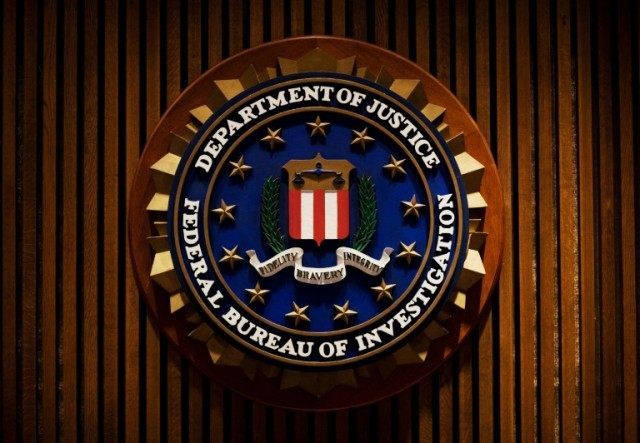The FBI’s Next Generation Identification System is the largest biometric database ever assembled, a billion-dollar system containing information on over 52 million people, many of them never subjected to a criminal investigation. The FBI has proposed exempting this massive database from the U.S. Privacy Act, which means citizens would not be told their information was included in NGIS or given an opportunity to correct any errors their files might contain.
In April, International Business Times illustrated the power of this FBI database by telling the story of fugitive Lynn Cozart, who stole another man’s identity and disappeared in the mid-Nineties after being convicted of molesting his own children in Pennsylvania. Cozart was able to hide under his stolen name in Oklahoma for 19 years, even after being featured on TV crime shows like America’s Most Wanted. When his photo was given to the NGIS unit, they were able to find him in no time flat, as the system matched his face to a driver’s license photo.
It was a show-stopping demonstration of what the system can do. International Business Times reviewed FBI data in February that said NGIS had “processed a total of 77,136 suspect photos and sent police 9,303 ‘likely candidates’ since 2011,” although there were no hard numbers on how many of those candidates were ultimately arrested.
“While federal officials and law enforcement hail the NGI program as a futuristic way to track terrorists and criminals, others have been notably less enthusiastic,” IBT reported. “Since the program’s inception, national privacy groups have argued that biometric collection programs like NGI encroach on civil liberties. In the name of security and public safety, many advocates say the U.S. government is increasing its surveillance, through programs like NGI, on everyday citizens who have done nothing wrong.”
Indeed, as Biometric Update observes, the FBI system contains not only data on people with criminal records, but also the information of everyone who has been “fingerprinted or iris-scanned for jobs, security clearances, or licenses,” which would include everyone who has ever “served in the military in a voluntary role, applied for a government job, or interacted with the government for naturalization, documents, and other processes.”
IBT paid a visit to the FBI’s Biometric Technology Center and found a 360,000-square-foot office building sitting on a thousand acres of secure land, with a data center the size of a soccer field. The computer equipment is so heavy-duty that it needs 1,800 tons of cooling equipment to keep it functional. The possibility of someday creating an automated facial recognition system that could pluck the faces of suspects from a blizzard of real-time media inputs is both exhilarating and disturbing – upload a photo, and within a matter of hours, the super-computer finds the suspect walking in front of a traffic camera or ATM in another state. (The FBI currently insists it has no plans to create such an automated system, even when the technology and raw data are available.)
Privacy advocates are worried about the power NGIS will acquire as it matures, and there have already been complaints about its accuracy, with false positives generated some 20 percent of the time.
That’s one reason the FBI’s request for an exemption to the Privacy Act is troubling to critics. If citizens don’t even know they’re in the database, they can’t review their file for accuracy.
“If you have no ability to access the record the FBI has on you, even when you’re not part of an investigation or under investigation, and lo and behold inaccurate information forms a ‘pattern of activity’ that then subjects you to [be] the focus of the FBI, then that’s a problem,” noted Jeramie Scott of the Electronic Privacy Information Center, a digital civil-liberties group, as quoted by NextGov.
Russia’s RT.com, which describes NGIS as the FBI’s “creepy biometric database,” notes that facial recognition software is already finding applications in the private sector, from identifying unruly patrons at nightclubs to unlocking personal computers by scanning the user’s face. There’s even a burgeoning industry for clothing, headgear, and cosmetics that can fool biometric scanners.
No matter what law enforcement says today about restraining its use of such technology, the temptation to create that automated real-time video-scanning Eye of Sauron will increase as the tech grows more powerful.
As for why the FBI wants an exemption from the Privacy Act, the agency cites the danger of compromising ongoing criminal investigations and “national security efforts,” revealing “sensitive investigative techniques,” or leaking information that could help suspects avoid detection.”
The FBI also argued that it’s “impossible to know in advance what information is accurate, relevant, timely and complete,” so over time, “seemingly irrelevant or untimely information may acquire new significance when new details are brought to light.”
In other words, it would be difficult know whether any particular bit of identification data was important enough to notify citizens about, and hard to know when identification data could be safely purged from the system because it had no further relevance.

COMMENTS
Please let us know if you're having issues with commenting.